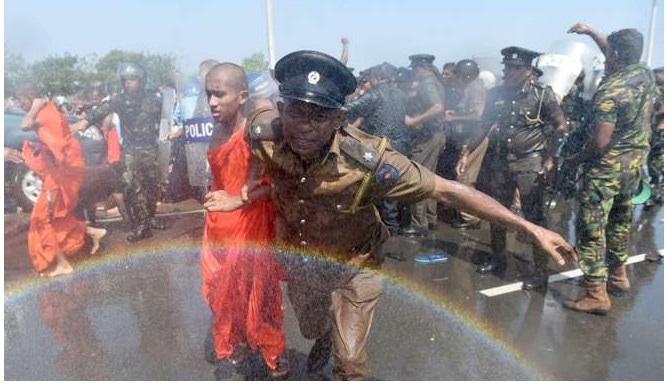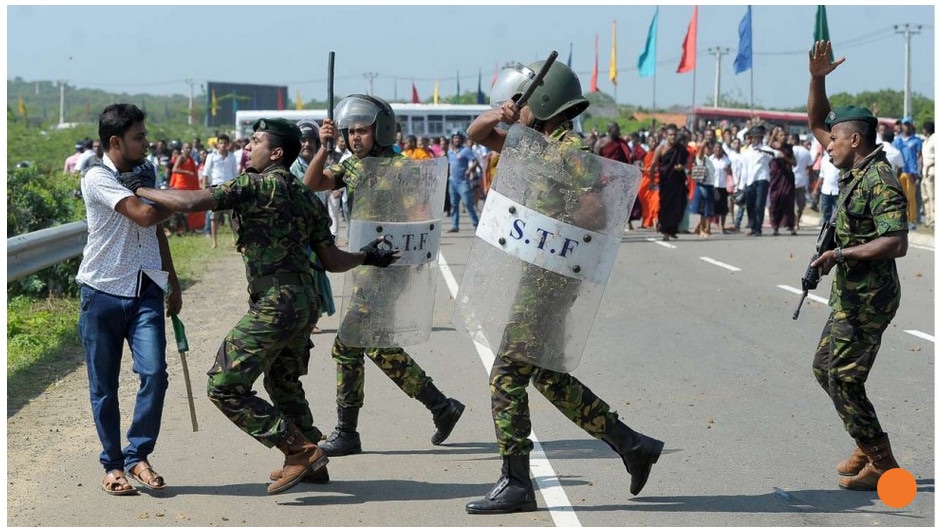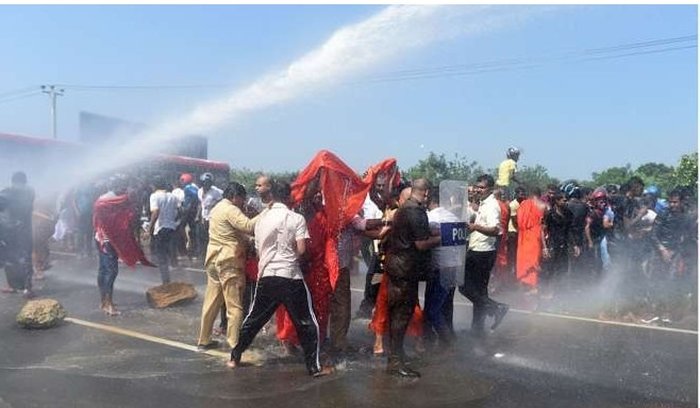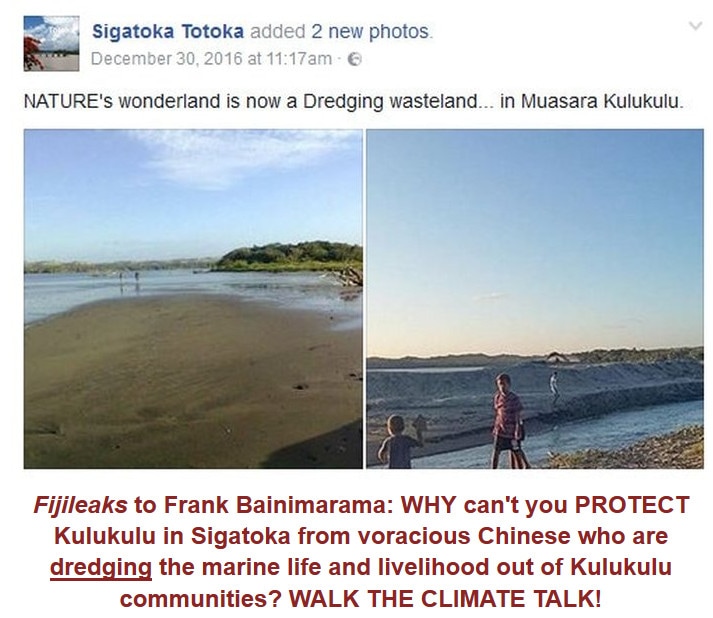The Sri Lankan government has signed a framework agreement for a 99-year lease of the Hambantota port with a company in which China will have 80 per cent ownership. Officials also plan to set up the nearby industrial zone where Chinese companies will be invited to set up factories. The villagers and monks are opposed to it and demand their residential and farmlands be spared. A court had issued a restraining order on the protest, saying it could lead to unrest
"When you give away such a vast area of land, you can't stop the area from becoming a Chinese colony."
"Ninety-nine years means at least two generations. When they [the Chinese] take root here, what's the guarantee that we will have it back? There is a major threat of cultural erosion and demographic change."
Several people have been injured in southern Sri Lanka during a protest against allowing China to build a port and industrial zone.
The plan envisages the eviction of thousands of villagers around Hambantota port, 240km (150 miles) south-east of the capital Colombo.
Police used tear gas as the protest delayed a ceremony being attended by Prime Minister Ranil Wickeremesinghe.
Opponents say the area is being turned into what they call a Chinese colony.
The government is finalising a 99-year lease of the port area to a company that is 80% Chinese-owned.
A nearby area will be used for an industrial zone where Chinese companies will be invited to set up factories.
The government says local people will be given new land.
The port development is the latest in a series of major investments by China in Sri Lanka's infrastructure.
China has pumped millions of dollars into Sri Lanka's infrastructure since the end of a 26-year civil war in 2009.
China's so-called string of pearls strategy - an attempt to expand its influence in South Asia - is controversial - and watched with particular suspicion by its regional rival, India, says the BBC's Jill McGivering.
The investment is part of its bold ambition to engineer a "Maritime Silk Route" to oil-rich parts of the Middle East, and onwards to Europe, our South Asia analyst says.
The plan envisages the eviction of thousands of villagers around Hambantota port, 240km (150 miles) south-east of the capital Colombo.
Police used tear gas as the protest delayed a ceremony being attended by Prime Minister Ranil Wickeremesinghe.
Opponents say the area is being turned into what they call a Chinese colony.
The government is finalising a 99-year lease of the port area to a company that is 80% Chinese-owned.
A nearby area will be used for an industrial zone where Chinese companies will be invited to set up factories.
The government says local people will be given new land.
The port development is the latest in a series of major investments by China in Sri Lanka's infrastructure.
China has pumped millions of dollars into Sri Lanka's infrastructure since the end of a 26-year civil war in 2009.
China's so-called string of pearls strategy - an attempt to expand its influence in South Asia - is controversial - and watched with particular suspicion by its regional rival, India, says the BBC's Jill McGivering.
The investment is part of its bold ambition to engineer a "Maritime Silk Route" to oil-rich parts of the Middle East, and onwards to Europe, our South Asia analyst says.





